Growth Curve
The inexact science of raising kids
Sign up for our newsletter
We summarize the week's scientific breakthroughs every Thursday.
-
 Health & Medicine
Health & MedicineSeeing one picture at a time helps kids learn words from books
A small study found that children were better able to pick up vocabulary from books that show only one picture at a time.
-
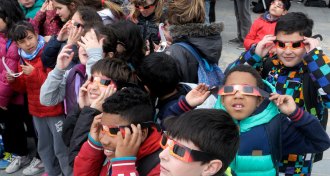 Health & Medicine
Health & MedicineProtect little ones’ eyes from the sun during the eclipse
Pay attention to eye safety for kids during the solar eclipse.
-
 Health & Medicine
Health & MedicineWhen kids imitate others, they’re just being human
In imitation tests, kids readily performed nonsensical actions, but bonobos didn’t. The results hint that excessive imitation may be a uniquely human trait.
-
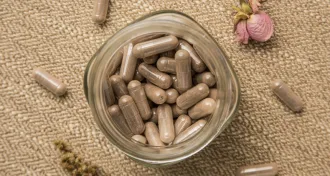 Health & Medicine
Health & MedicineNewborn baby’s infection offers a cautionary tale about placenta pills
A newborn came down with a dangerous bacterial infection. The culprit, scientists suspect, was contaminated placenta pills eaten by the mother.
-
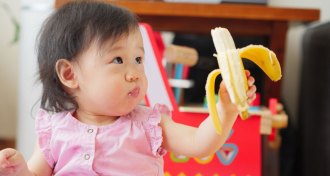 Health & Medicine
Health & MedicineBaby-led weaning won’t necessarily ward off extra weight
Babies allowed to feed themselves gained similar amounts of weight as babies spoon-fed by caretakers.
-
 Health & Medicine
Health & MedicineHere’s how a child sees a Van Gogh painting
Children’s eyes are drawn to vivid, bright and bold parts of Van Gogh paintings. But they can shift their viewing strategies with a little prompting, a new study suggests.
-
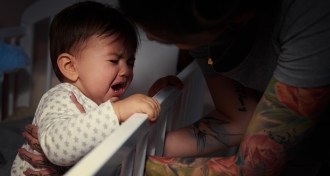 Health & Medicine
Health & MedicineWhen should babies sleep in their own rooms?
A new study offers support to sleep-starved parents by suggesting that babies age 6 months and older sleep longer when in their own bedroom.
-
 Health & Medicine
Health & MedicineIt’s best if babies don’t drink their fruit as juice
New guidelines from the American Academy of Pediatrics recommend no fruit juice for babies younger than 1 year old.
-
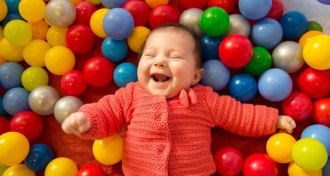 Health & Medicine
Health & MedicineBabies categorize colors the same way adults do
Babies divide hues into five categories, much like adults, a result that suggests color categorization is built into the brain.
-
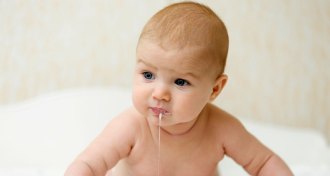 Health & Medicine
Health & MedicineDrugs for reflux disease in infants may come with unintended consequences
Infants prescribed proton-pump inhibitors for reflux disease may be at higher risk for broken bones later on.
-
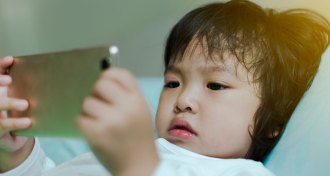 Health & Medicine
Health & MedicineToddlers’ screen time linked to speech delays and lost sleep, but questions remain
Two new studies link handheld screen time for young children to less sleep and greater risk of expressive language delays. But the results are preliminary.
-
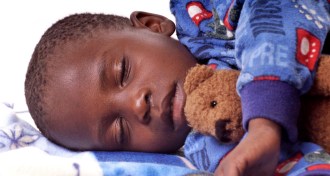 Health & Medicine
Health & MedicineLong naps lead to less night sleep for toddlers
Daytime naps can steal sleep from the night, a small study of toddlers suggests.